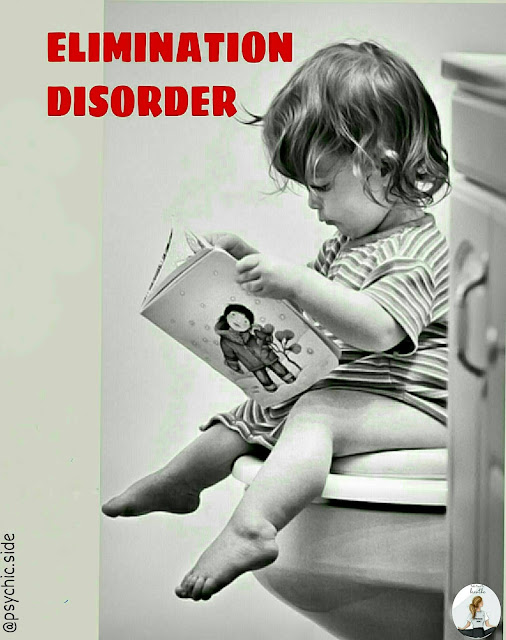CHILD PSYCHIATRY (Mental Retardation, Autism, Learning Disability, ADHD, Elimination Disorders)
MENTAL RETARDATION
• Mental Retardation is defined as significantly sub average general intellectual functioning associated with significant deficit or impairment in adaptive functioning , which manifests during the developmental period ( before 18 yrs of age ).
• General intellectual functioning is usually assessed on a standardised intelligence test with significantly sub average intelligence as two standard deviations below the mean ( usually an IQ of below 70 ).
• Whilst adaptive behaviour is the persons ability to meet responsibilities of social , personal , occupational and interpersonal areas of life , appropriate to age , socio - cultural and educational background.
• Adaptive behaviour is measured by clinical interview and standardised assessment scales.
• A person with MR must have a deficit in both general intellectual functioning and adaptive behaviour.
• A classification of mental retardation on the basis of IQ :
IQ = Mental age ÷chronological age × 100.
Types of Mental Retardation
IQ range
1) Mild - 50 - 70
2) Moderate - 35 - 50
3) Severe - 20 - 35
4) Profound - < 20
Symptoms of Mental Retardation
• Delay developmental milestones.
• Significant impairment in interpersonal communication and social inferiority.
• Motor activity issue.
• Marked impairment in facial features.
• Poor academic performance.
Aetiology of Mental Retardation
Genetic, Perinatal, Acquired physical disorder in childhood, Socio cultural & Psychiatric disorder etc.
Treatment plans for Mental Retardation
Behavioral therapy , Speech therapy , Psychotherapy , behavioural modification , parental counseling etc.
• Autistic disorder defined by the presence of abnormal or impaired development that is manifest before the age of 3 yrs , and by the characteristic type of abnormal functioning in all three areas of social interaction , communication and restricted , repetitive behaviour.
• The disorder occurs in boys three to four times more often than in girls.
Clinical features of Autism
• Marked impairment in social interaction.
• Marked impairment in language and non - verbal communication.
• Abnormal behaviour.
• Mental Retardation.
Other features.
Aetiology of Autism
Biological causes.
Treatment plans for Autism
Behaviour therapy, Psychotherapy, Pharmacotherapy, Speech therapy, Parental counseling etc.
LEARNING DISABILITY
• It is characterised by an inadequate development in usually one specific area of functioning.
• The deficit in functioning may be in scholastic skills, speech and language, and motor skills.
• These may include reading, spelling, language, arithmetic, articulation coordination etc. Sometimes more than one development disorder is present.
• All learning disability either cause impairment in academic functioning at school and when language is affected they impairment in the daily activities.
• Large majority of these children have an underlying cerebral disorder.
• Boys are usually more affected than girls.
• Before making a diagnosis of learning disability it is important to keep in mind the mental age, IQ, socio-cultural background, schooling, impairment in vision and hearing or any neurological deficit.
Types of Learning Disability
1) Specific Reading Disorder (Dyslexia) -
Serious delay in learning to reading. The problem may include omissions, distortions, substitution of words, long hesitations, reversal of words, slow reading. Writing spelling is also affected. May be history of spelling, speech and language disorder.
2) Specific Spelling Disorder -
Serious impairment in spelling skills in the absence of history of specific reading disorder. The ability to spell orally and write out words correctly both are affected. Generally writing may not be affected but sometimes affected.
3) Specific Arithemetic Disorder (Dyscalculia) -
Impairment in arithmetic abilities below the level expected for mental age. Problem include failure to understand simple mathematics concepts, mathematics symbols, maths table.
4) Specific Speech and language Disorder (Dyphasia) -
Three types of Impairment in speech and language :-
• Phonological Disorder - deficit speech sound, articulation error, speech sound omitted.
• Expressive language Disorder - restricted vocabulary, difficulty in selecting words, immature grammatical usage.
• Receptive language Disorder - impairment in simple instruction, deficit to understand language.
5) Specific Disorder of Motor Function -
Poor coordination in daily activities like dressing, eating, playing etc. Inability to perform fine or gross motor skills.
6) Mixed Disorder of Scholastic Skills -
Present arithmetic, reading and spelling disorder.
Treatment plans for Learning Disability
• Learning theory principal and is behavioral in approach.
• Special remedial teaching, focusing on the underlying deficit.
• Parental education and counseling etc.
ATTENTION DEFICIT HYPERACTIVITY DISORDER (ADHD)
• ADHD defined by the combination of overactive, poorly modulated behaviour with marked inattention and lack of persistent task involvement; and pervasiveness over situations and persistence over time of these behaviour.
• ADHD always arise early in development (usually in the first 5 yrs of life). Lack of persistence in activities that requires cognitive involvement and tendency to move from one activity to another without completing anyone, disorganised and excessive activity.
• Other abnormalities
Reckless and impulse, prone to accidents, find themselves in disciplinary trouble because of unthinking breaches of rules, their relationship with adults are often socially dis-inhibited, cognitive impairment is common and delays in motor and language development.
• Dis-social behaviour and low self esteem.
• This Disorder occurs in boys 6-8 times more often than in girls.
Classification of ADHD
Four Clinical Types of ADHD -
1) Attention Deficit Disorder with Hyperactivity - Distractibility, Hyperactivity, Impulsiving.
2) Attention Deficit Disorder without Hyperactivity - Rare Disorder, distractibility, impulsiving without Hyperactivity.
3) Residual type - Diagnosed in adulthood.
4) Hyperkinetic Disorder with Conduct Disorder - Hyperkinetic Conduct Disorder.
Treatment plans for ADHD
Pharmacotherapy - drug treatment.
Behaviour modification - counseling and supportive Psychotherapy.
ELIMINATION DISORDERS
• Elimination Disorder are Disorders that concern the elimination of faeces or urine from the body at inappropriate places, usually involuntarily.
• Usually affecting children over the age of 4 yrs who have already been toilet trained . It occur at any time not only during sleep or at night.
Types of Elimination Disorder
1) Enuresis
Involuntary voiding of urine by day or night at inappropriate place which is abnormal in relation to the individual mental age and which is not a consequence of a lack of bladder control due to any neurological disorder, epileptic attacks or to any structural abnormality of the urinary tract. Emotional and behavioral problems arise due to enuresis. Diagnosed after 5 yrs of age .
2) Encopresis
Voluntary or involuntary voiding of faeces by day or night at inappropriate place which is abnormal in relation to the individual mental age and which is not a consequence of a lack of control due to any neurological disorder, epileptic attacks or to any structural abnormality of the urinary tract. Emotional and behavioral problems arise due to Encopresis. Suffers at the age of 5 yrs.
Symptoms of Elimination Disorders
• Secretive bowel movement behaviour.
• Constipation.
• Inability to retain faeces.
• Hard stools.
• Involuntary urination at least twice a month (Enuresis).
Treatment plans for Enuresis
1. Restriction of fluid intake after 8 PM, in nocturnal enuresis.
2. Bladder training during daytime, aimed at increasing the holding-time of bladder. This is carried out in a step-by-step manner using positive reinforcements.
3. Interruption of sleep before the expected time of bed wetting. The child should be fully woken up and made aware of passing of urine.
4. Conditioning devices, which cause an alarm to sound as soon as the voided urine touches the bed- sheet.
5. Psychotherapy for the child, parents and the whole family is often needed.
Treatment plans for Encopresis
After encopresis has developed, the treatment of choice is behaviour therapy, using reinforcements (both positive and negative). The other treatments include psychotherapy, biofeedback and imipramine (in non-retentive encopresis).







Very good written :)
ReplyDeleteNice Article 👍
ReplyDeleteThank you 😊
DeleteVery interesting
ReplyDeleteThank you 😊
DeleteVery well presented.
ReplyDelete